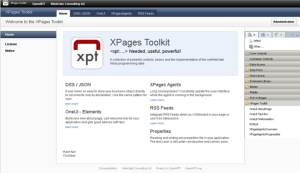First I’ve to excuse that we are so selfish to call our programming model ninja-style. It was happened based on the fact, that we have programmed ninjas in internal programming course. But the term ninja-style was established and if you gave something a name, it’s very hard to change it (Maybe you have seen Monster.Inc by Pixar, then you know what I mean).
Our intention is to make programming for XPages as much fun as possible. And fun means in the case of programming: Having success, with less of effort and stress.
But the ninja-style has also to do with leaving the comfort zone and go out from this protected workshop in which the most of the domino developers where living. XPages requires a complete new set of skills. On the front end part are you faced with: HTML5, JavaScript, CSS, DOJO (and that’s only the beginning) and of course SSJS for the binding part. On the backend is Java the most required skills, that you should have. But you have also to learn about data sources, controls, data binding and something called JSF life-cycle.
Definitely a lot of topics to cover and the most of us are not geniuses, specially universal genius. It’s a matter of fact that it is easier to split and separate the topics. Because of this we have introduced the N-Tier architecture to our programming model. We have separated the front end stuff, from the back-end stuff.
The front end covers all the presentation (Presentation Layer)
Typically our front end developers are brilliant in arranging all the controls in the XPages and they are mostly virtuous in JavaScript, CSS and Dojo. They know about the “beans” as far as they have to know how to use them as API to the model and the business logic. They don’t care, how object are loaded and stored, they don’t care about how processes and logic are executed, as long all is working correct.
The backend covers all the model and business logic (Business logic Layer)
The back-end guys do all the brilliant stuff with the model of the data and all the processes. Mostly they are Java Cracks or on the way to it. They care about good backend performance and have read the book “design pattern” by the gang of for. No interface and connection to any backend is to complex for them, but do not let them do any HTML stuff.
But where are the storage guys?
At this point, some of the core features of the XPT cames to action. The DSS of the XPT solves all the storage stuff.
But keep this: Having success with XPages has to be about simplification. Our first step was to separate front end from back-end.
To be continued >>>
Christian


